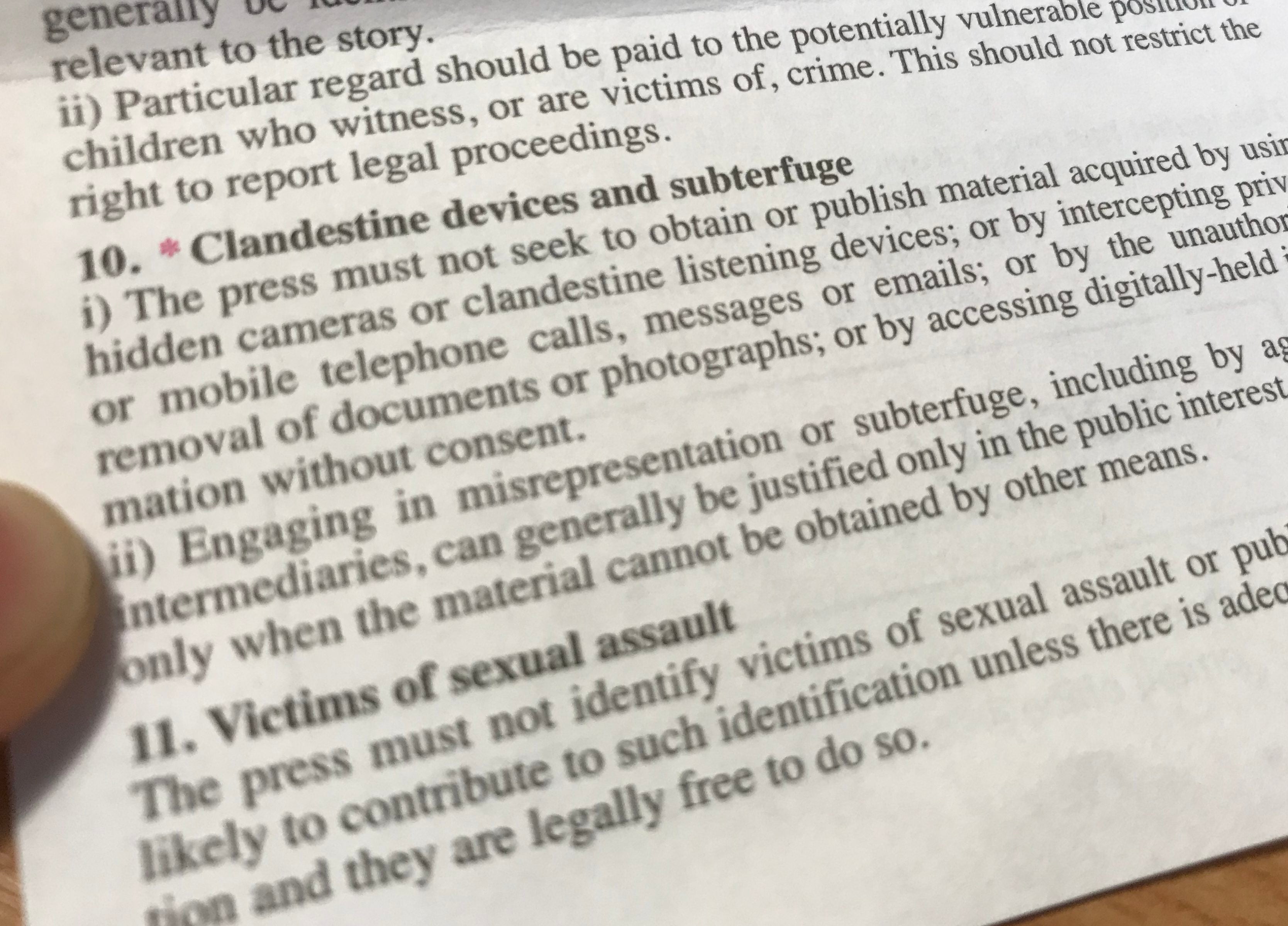
An “ambiguous” clause in the Editors’ Code of Practice has been revised to make clear that journalists should ensure they do not identify sex assault victims to people during their newsgathering.
Previously Clause 11 (victims of sexual assault) could be read as concerning only the publication of information that identifies or is likely to identify victims, not actions taken by a journalist before publication.
The Independent Press Standards Organisation urged the Code Committee, which writes and revises the code, to look again at the clause after two complaints last year where it was uncertain if it had been breached.
The clause currently states: “The press must not identify or publish material likely to lead to the identification of a victim of sexual assault unless there is adequate justification and they are legally free to do so.”
Victims of any sex offence are given lifetime anonymity under UK criminal law from the time an allegation is made. This can be waived only with written permission from the victim.
The expanded clause, which comes into effect on 1 July, will read: “Journalists are entitled to make enquiries but must take care and exercise discretion to avoid the unjustified disclosure of the identity of a victim of sexual assault.”
Editors’ Code Committee chairman Neil Benson (pictured), former editorial director of Trinity Mirror’s regional newspapers, said: “When IPSO said the text of the existing clause appeared to be ambiguous, the Code Committee moved quickly to produce a revised version that makes clear that inadvertently disclosing the identity of a victim of a sexual assault without justification during newsgathering, even if nothing is published, is within the scope of Clause 11.”
Charlotte Urwin, IPSO’s head of standards, said the change would “clarify and strengthen protections for survivors of sexual offences”.
In May last year IPSO upheld a complaint from Warwickshire Police against the Daily Mail from three victims of sexual offence after a journalist working for the paper identified them to friends and family in the course of inquiries.
The complaint was upheld under Clause 2 (privacy) but was not ruled to be in breach of Clause 11 (victims of sexual assault) as the victims were identified to third parties, including parents, in conversation and not in a published article.
Two months earlier, in relation to the same criminal case, IPSO decided not to rule against the Sun under Clause 11 as it said the newspaper had not identified the complainant as a victim of sexual assault through making its inquiries or published material likely to identify them.
However the Sun was found in breach of Clause 3 (harassment) for calling a victim three times while a criminal trial was ongoing.
The regulator called the wording of Clause 11 “ambiguous” in both cases.
A revised edition of the Editors’ Codebook will be published on 1 July to include the new wording. It will also feature details of recent adjudications, examples of best practice and the latest guidance from IPSO on applying the code.
Benson said: “It is evident that since this codebook was last updated a little over a year ago, it has become even more difficult for the public to separate the truth from a murky maelstrom of fake news, propaganda and manipulation.
“From websites peddling ‘news’ that is intended to mislead, to interference by an array of ‘bad actors’ using social media to further their often-opaque agendas, the public has never been confronted with such a toxic diet of disinformation.”
Referring to the tone of the current political debate and controversies around trolling and offensive content on both Facebook and Twitter, he added: “Against this unedifying backdrop, the press can be proud of the effectiveness of its self-regulatory system.
“Where others seek to duck accountability, the press is, through a binding contractual agreement, prepared to be held to account and to offer redress to people it has wronged.”
Picture: Press Gazette
Email pged@pressgazette.co.uk to point out mistakes, provide story tips or send in a letter for publication on our "Letters Page" blog
